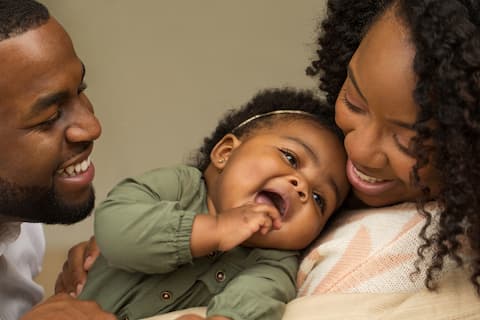What is Child-Parent Psychotherapy?

Overview
Child-Parent Psychotherapy (CPP) is an evidence-based treatment for young children from birth through age 5 who have experienced at least one traumatic event and/or are experiencing mental health, attachment, and/or behavioral problems, including posttraumatic stress disorder. CPP is a multi-faceted, relationship-based treatment that focuses on the child-parent interactions and on building trust and safety versus danger and fear.
Therapeutic sessions include the child and primary caregiver. The primary goal of CPP is to support and strengthen the relationship between a child and their caregiver as a vehicle for restoring the child's cognitive, behavioral, and social functioning. Treatment also focuses on contextual factors that may affect the caregiver-child relationship (e.g. cultural norms and socioeconomic and immigration related stressors). Treatment is typically conducted by a master’s or doctoral-level clinician and involves weekly 1-1 ½ hour sessions for a period of 20-32 weeks or more. Sessions may take place in the home or office.
For more information on the model, please visit Child-Parent Psychotherapy or Child-Parent Psychotherapy fact sheet.
Components of the CPP Model
CPP Treatment consists of three phases:
Foundation Phase: Assessment and Engagement: The clinician spends time getting to know the family and working to gain an overview of the trauma history of both the young child and their caregiver. This phase of the model involves meeting alone with the caregiver as well as time with both the caregiver and young child. The clinician and caregiver co-create a treatment plan including an agreement on how to address the traumatic events.
Core Intervention: The clinician begins to help the caregiver and young child to create a family story that leads to healing, understand each other, and help the child understand why the clinician is meeting with the family. The clinician will often use toys because young children show feelings and thoughts through play.
Recapitulation and Termination: Promoting Sustainability of Gains: The clinician will celebrate with the family the changes they have made and how the caregiver made those changes happen, discuss how feelings and goodbyes may bring up different feelings, and discuss what will be needed in the future.
Who can benefit from CPP?
Child-Parent Psychotherapy treatment is one of the few empirically validated treatments for children age birth through 5. In addition, it is one of the few empirically validated treatments that is routinely conducted with ethnic minorities. The treatment is flexible and allows for the incorporation of a discussion of cultural values and culture-related experiences. Clinicians are encouraged to tailor engagement strategies depending on the needs and background of the family.
Infants, toddlers, and young children who have experienced a traumatic, painful or scary event(s) including serious medical procedures, abuse, violence in their home or community, placement into the foster care system, etc. and/or are experiencing mental health, attachment, and/or behavioral problems, including posttraumatic stress disorder (PTSD).
CPP studies involving diverse families have shown improvements in young children’s mood, problem behaviors, learning, and trauma symptoms. Caregivers have also shown improvement in their mood, level of parenting stress, trauma symptoms and partner relationship. CPP has also been shown to improve the overall parent-child relationship quality.
What does a CPP Learning Collaborative Training look like?

A CPP Learning Collaborative training through the Children’s Trauma Initiative consists of:
- A 19-month commitment
-
Three learning sessions each separated approximately 6 months apart.
- Learning Session 1 is 3 days
- Learning Session 2 is 2 days
- Learning Session 3 is 2 days
- Participation in twice monthly consultation calls for 18 months
- Fidelity Monitoring through our REDCap data collection system
- Implement and provide the model to at least 4 children and families during the Learning Collaborative
-
Teams consist of at least 1 clinician and 1 clinical supervisor
- Clinical Supervisors currently provide clinical supervision to master’s level therapists
- Clinicians are serving children, youth, and their families who are part of the Community Mental Health Services Programs (CMHSP) system
- Clinician(s) and supervisors must be masters level clinicians
Training Qualifications
CPP Learning Collaboratives are provided on a regular basis throughout the year to Community Mental Health Services Programs (CMHSPs) and their provider agencies. To qualify for a Learning Collaborative in our evidence-based CPP program, you must be a licensed clinician employed by either a CMHSP or provider agency.
Please speak with your agency supervisor if you are interested in participating in an upcoming Learning Collaborative.
